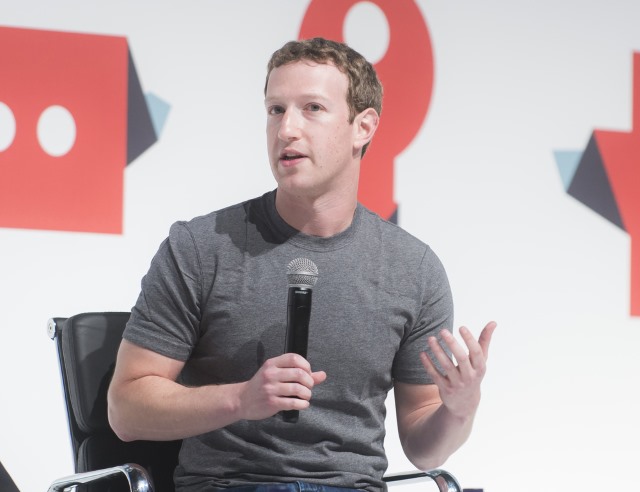
Mark Zuckerberg to publicly shame himself over Cambridge Analytica scandal on CNN tonight
Facebook is a pretty terrible experience. Yeah, as a social network, I guess it does its job of connecting friends, family, and colleagues, but its non-chronological interface makes it damn-near impossible to make sense of things. Not to mention, it is a privacy nightmare, expecting users to opt-out of data-slurping features using confusing settings. Don't even get me started on its spread of fake news. Ultimately, it is not user-friendly, and the company seems content with letting it remain that way.
The Cambridge Analytica scandal merely highlights things "conspiracy theorists" have long screamed about -- with Facebook, you are the product. While people were fairly accepting of trading their details for advertising, nobody expected that their Facebook use could impact the outcome of a presidential election! Hell, Donald Trump was arguably handed the election by a combination of Russian meddling and this Cambridge Analytica data misuse. After days of deafening silence, today, billionaire Facebook CEO Mark Zuckerberg finally admits his company's failures. Taking it a step further, he will face a public shaming tonight on CNN.
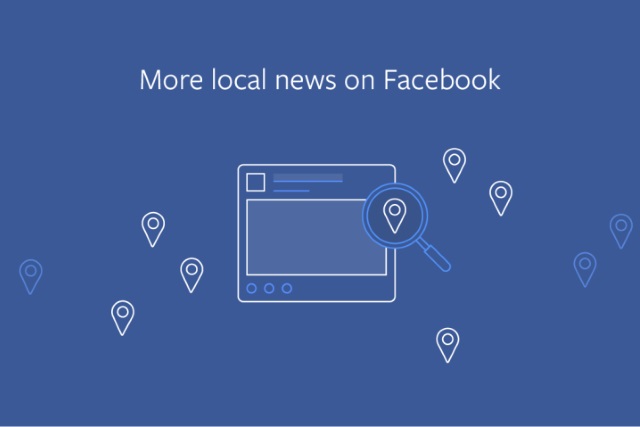
Facebook's latest News Feed update gives local news a boost
Facebook recently promised big changes to the way its News Feed works, and Mark Zuckerberg has now revealed that the social network will start to place a greater emphasis on local news. At least it makes a change from constantly banging on about fake news.
It's part of the company's desire to increase civic engagement, with the Facebook CEO saying that there is a direct link between reading local news and people getting involved in helping out with local causes. The changes are coming to the US first and will then spread to the rest of the world.
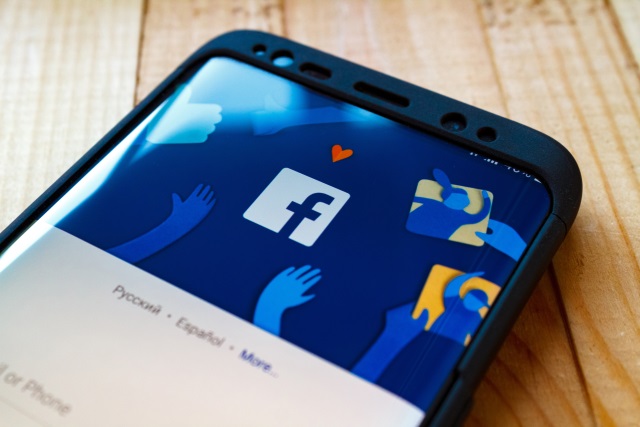
Facebook to fight 'sensationalism, misinformation and polarization' with news trustworthiness surveys for users
Facebook has said time and time again that it will do more to fight the problem of fake news on the social network, and the company's latest idea is to simply ask users which news sources they know and trust.
In a post on his own Facebook page, Mark Zuckerberg said that Facebook will start to "ask people whether they're familiar with a news source and, if so, whether they trust that source." Seemingly blind to the idea that this could be open to abuse and manipulation, he says that this will shift the balance of the news that is displayed on the site.
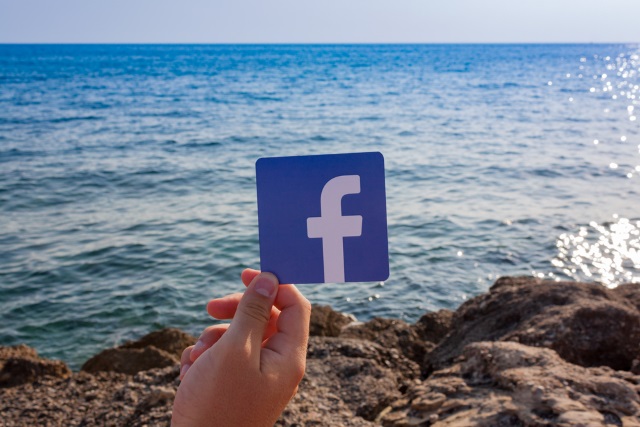
Big changes to Facebook's news feed mean you'll probably spend less time on the social network
Facebook is planning major changes to the way its news feed works, and Mark Zuckerberg says he believes that the amount of time people spend using the social network will go down as a result.
This might seem like a slightly strange thing for the company to do, but these changes are about improving the overall experience. Zuckerberg says that "the time you do spend on Facebook will be more valuable." So what can we expect from the changes? For starters, you should see more posts from the people you know, and fewer from brands and pages.
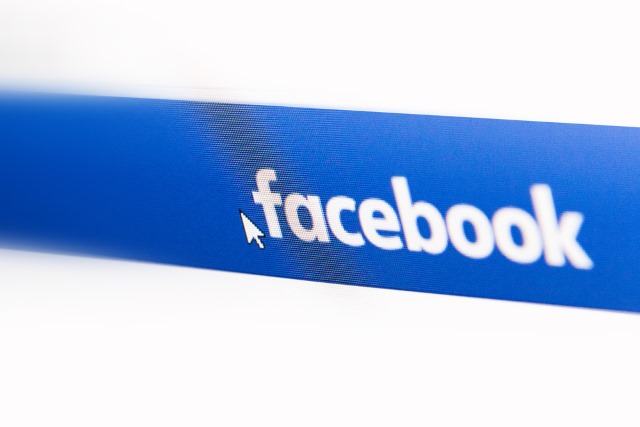
Mark Zuckerberg denies Facebook is anti-Trump
Yesterday, Donald Trump used his favorite medium of Twitter to complain that -- as well as some media outlets -- Facebook was opposed to him. Mark Zuckerberg has now responded, speaking out to deny the claim.
He said: "Trump says Facebook is against him. Liberals say we helped Trump. Both sides are upset about ideas and content they don't like. That's what running a platform for all ideas looks like." The Facebook founder also backtracked on his earlier dismissal of the social network's influence on the election as "crazy."
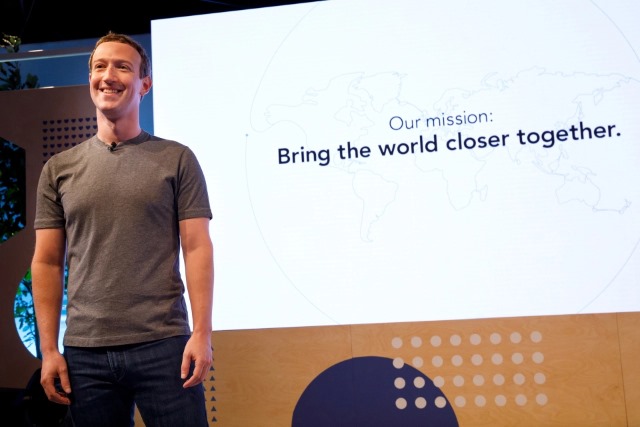
Facebook's new mission statement: 'give people the power to build community and bring the world closer together'
Mark Zuckerberg has announced a new mission statement for Facebook. The social network is no longer interested in making the world "more open and connected," now it wants to "give people the power to build community and bring the world closer together."
The change of direction will set Facebook's course for the next decade, and it was revealed at the Facebook Communities Summit. At the summit Facebook also revealed a new batch of tools for group admins to help drive the sense of community and make groups easier to manage.
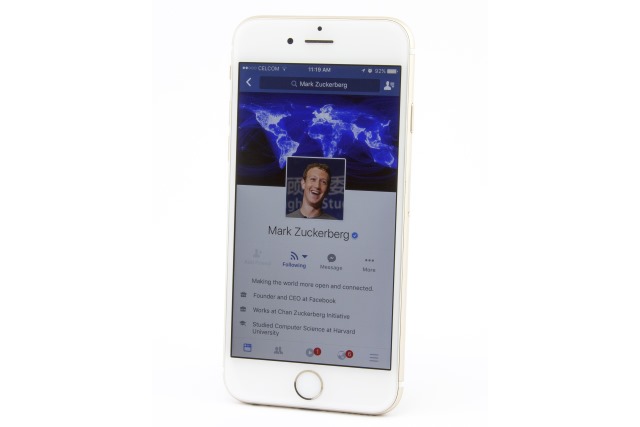
Mark Zuckerberg's rambling letter covers fake news on Facebook, nudity and profanity -- and his ego
In a lengthy missive that has been described by some as a manifesto, Mark Zuckerberg has written a counterattack to criticism of his beloved Facebook. He waxes lyrical about a rosy vision of the future in which communities come together, everyone is included, and everyone is empowered -- largely facilitated by him. For a man who denies he has political leanings, he certainly seems to have been studying Speaking Like A Politician 101. He is nothing if not almost impressively vague.
But when Zuckerberg is not massaging his own ego as he dreams up ways to save the world ("I hope we can come together to build a global community that works for everyone"), the content of the website he created still gets a mention. In the age of Trump there is endless talk of fake news, and Facebook has certainly played a role in helping this to spread. This, along with other problems, such as the spread of terrorist propaganda, is something Zuckerberg wants to combat, and he's placing a great deal of confidence in artificial intelligence and his beloved algorithms.
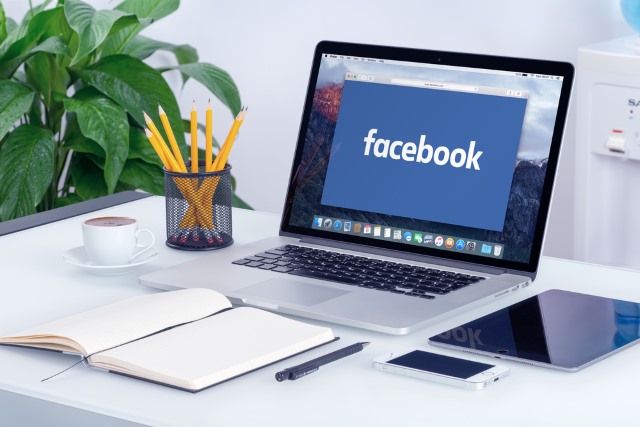
How will Facebook fight the fake news phenomenon? Poorly... and stupid, lazy users don't help
Facebook has many problems, but the most recent and prominent of them has been the issue of fake news. So serious is the problem, that some have blamed fake news stories on Facebook as being the reason Donald Trump is now president elect.
Mark Zuckerberg has made it fairly clear he doesn't subscribe to this particular idea, but he is certainly aware that fake news is a problem. Under pressure to do something about it -- bearing in mind that for a worrying percentage of people, Facebook is their only source of news -- Zuckerberg wants to not only make it clear that "we take misinformation seriously", but also that there are plans to tackle the problem. But they're not very good.
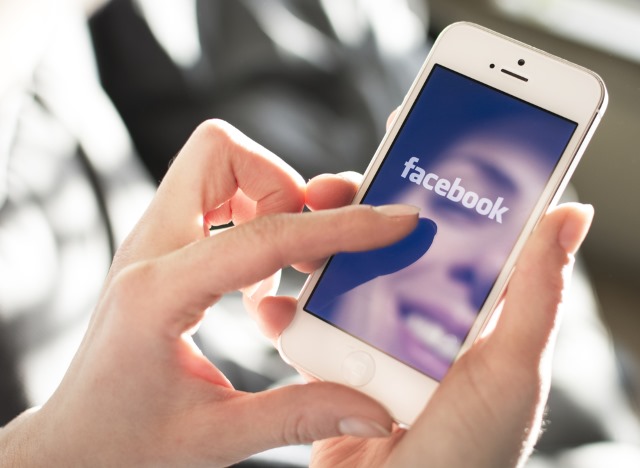
Mark Zuckerberg denies Facebook influenced the US election, and vows to tackle fake news
In the wake of the election of Donald Trump as Barack Obama's successor as president of America, Mark Zuckerberg has spoken out to deny claims that Facebook in any way influenced the result of the US election.
Criticism of Facebook has taken various forms. One of the key complaints is that its news algorithms serve to create an echo chamber, exaggerating the already-present confirmation bias effect. But there are also concerns that fake news is a serious problem on the platform.
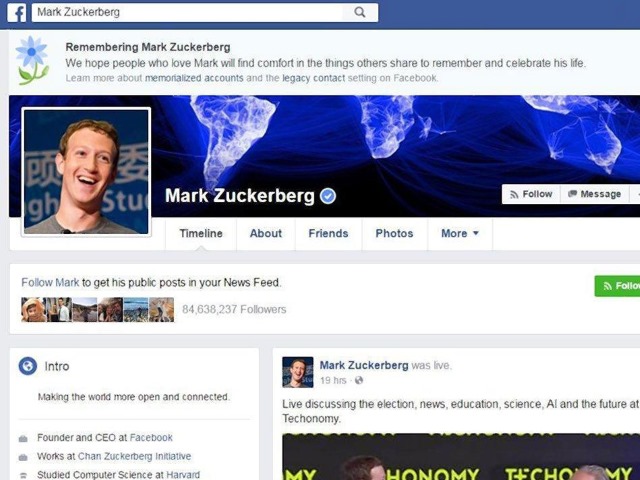
Facebook's Mark Zuckerberg is dead... maybe you are too
A "terrible error" has been blamed for the accidental virtual killing of a number of Facebook users, including none other than Mark Zuckerberg. Thousands of users of the social network logged into their accounts to find out they were dead after Facebook experienced a strange bug.
The accounts of many people were memorialized as friends were invited to "remember and celebrate" the lives of the "deceased". The mistake led to Facebook users having to reassure friends and family that they were OK and remained alive and kicking.
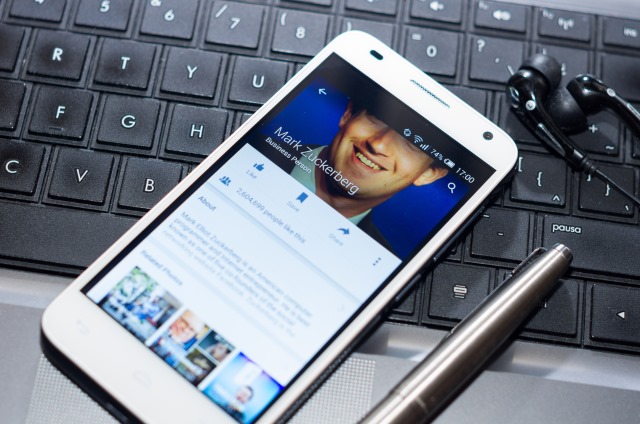
Warning: Mark Zuckerberg decides what's newsworthy, making him the world's most powerful editor
Facebook has stated time and time and time again that it is not a media company, despite appearing to act very much like one. The company's protestations become all the more difficult to swallow when one looks at the way it handles news. In reality, Facebook wields far more power and influence that it's willing to admit.
There have been countless instances of Facebook censoring posts from individuals, groups and organizations. Facebook appears to have an unwritten (or largely unpublished) set of rules defining what can be posted on the social network, and just this week Facebook staff wanted to censor posts by Donald Trump because they were considered hate speech. Zuckerberg disagreed, overruled his employees and allowed them to go ahead. One rule for us, another rule for them.
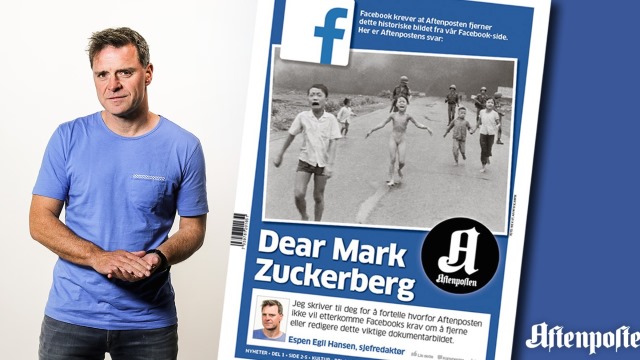
Critics lambast Mark Zuckerberg after Facebook censors iconic image of Vietnam war for nudity [Update -- Facebook backs down]
The photograph taken by Nick Ut showing Kim Phúc (sometimes referred to a 'napalm girl') fleeing a napalm attack is one of the most iconic images of the Vietnam war. It's a picture that's seared into the memory of anyone who has seen it, and the Pulitzer prize-winning photograph is often held up as an anti-war image.
But Facebook sees things differently. The company saw fit to censor the image by deleting a post by a Norwegian writer who used the photo. The writer, Tom Egeland, was also suspended from the site. Facebook stands accused of abusing its position as "the world's most powerful editor" in a scathing attack by the editor-in-chief and CEO of Norway's largest newspaper, Aftenposten. Today Espen Egil Hansen uses a front page editorial to launch a blistering diatribe against Mark Zuckerberg.
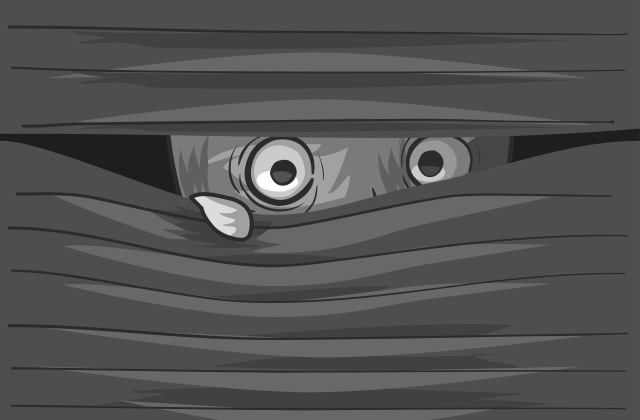
Mark Zuckerberg is so concerned about his privacy that he tapes over his webcam and microphone
Facebook and privacy are not words usually associated with one another, and it seems this holds true even for the man at the top. Only recently we learned that Mark Zuckerberg uses terrible passwords, making it easy to hack his accounts, but now it turns out he's also quite paranoid.
As Instagram popped champagne corks for reaching the milestone of half a billion users, Zuckerberg posted a celebratory picture. Eagle-eyed people soon pointed out that both the mic and camera of his laptop were taped over.
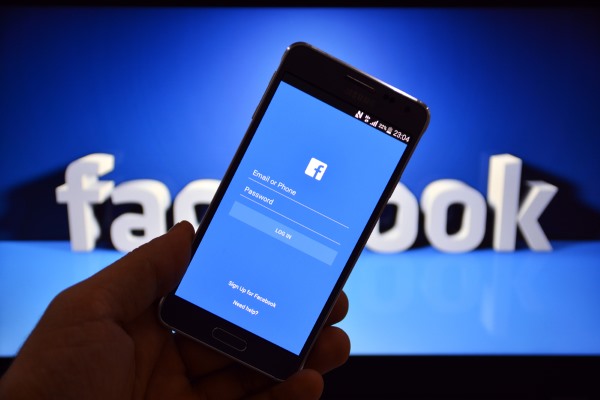
Facebook hit with lawsuit over new stock option that gives Zuckerberg a license to print money
When Facebook announced its first quarter results this week, it also announced that it created a new class of stock. The non-voting Class C stock proposed would enable Mark Zuckerberg and his wife Priscilla Chan to more easily fund their philanthropic ventures, whilst keeping Zuckerberg himself firmly in control of Facebook.
In response to this, a lawsuit has been raised that says the proposed deal is unfair. The shareholders raising the class action lawsuit said the deal would grant Zuckerberg even more control and that the board committee didn’t do enough "to obtain anything of meaningful value" in return. The lawsuit accuses him of wanting "to retain this power, while selling off large amounts of his stockholdings, and reaping billions of dollars in proceeds".
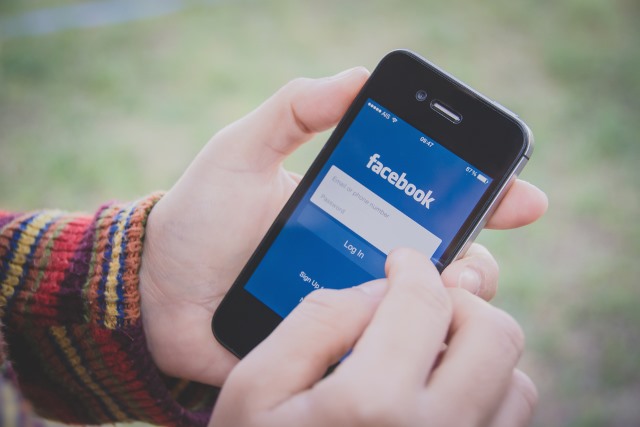
Egypt bans Facebook Free Basics for NOT spying on users
In another blow for Mark Zuckerberg's free internet service, Facebook Free Basics has been banned in Egypt. The Egyptian government made the decision after Facebook refused to allow it to use the service to spy on users.
The shutdown comes just five months after Facebook Free Basics launched in Egypt, having proved controversial in other countries for contravening net neutrality rules. But Facebook's refusal to permit government surveillance of users means that the service has been banned this time for political reasons.
